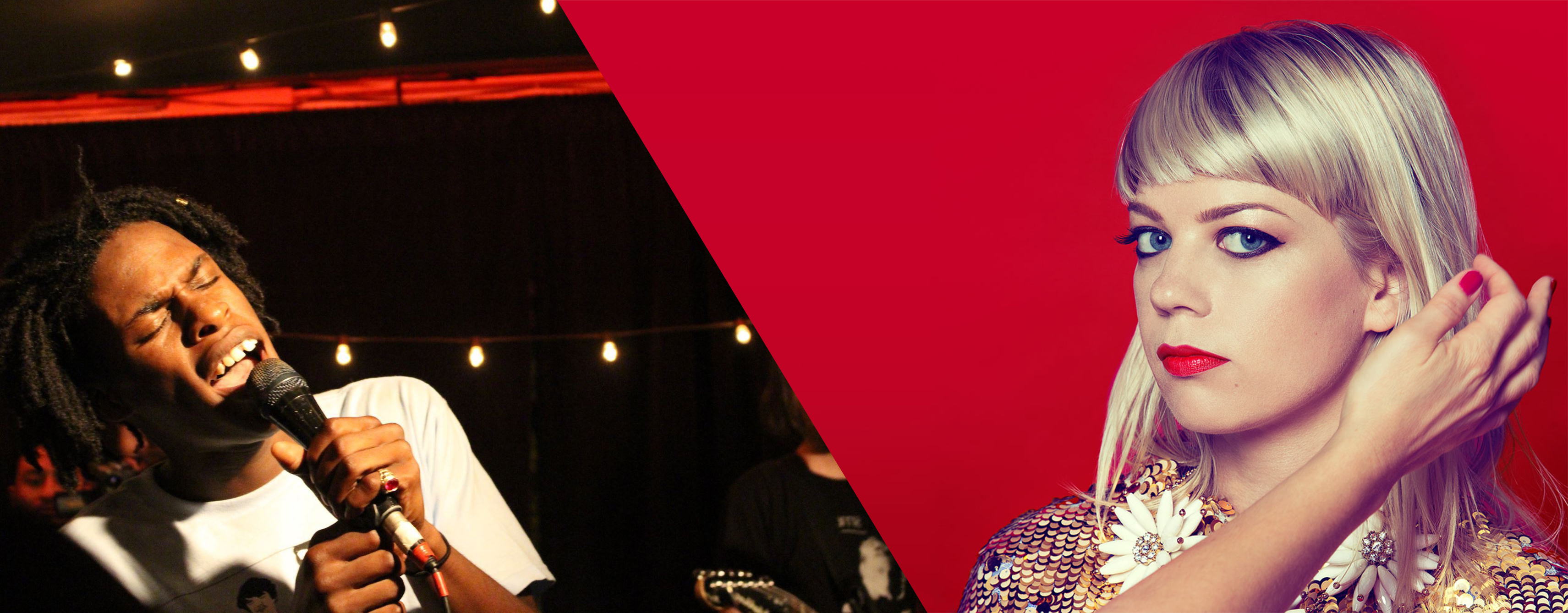
Daniel Caesar and Basia Bulat
Let Me In
In Interviews • # Basia Bulat, Daniel Caesar, Halifax, HPX2016, music
Basia Bulat opened her show at the Halifax Pop Explosion on a quiet note. She stepped onto the stage alone and, after a smile at the packed room, began gently plucking at her charango as she dove into “It Can’t Be You.”
It was a brave move: Bulat’s headlining set at the Marquee Ballroom found her in front of a chatty, energetic crowd that might not otherwise jive with subtle stripped-down folk songs. And most of the set that followed her opening song reflected this, as Bulat’s three-piece band joined her to give her songs rhythmic substance that many in the audience bopped, swayed, and otherwise danced along to. Bulat’s latest album, Good Advice, provided plenty of fodder for this upbeat tone, and songs like “Infamous” and “In The Name Of”—among the best in her catalogue—sounded better than ever in the context of a full band.
Still, the quiet “It Can’t Be You” was the song that set the tone for the night, and it’s no coincidence that it was the night’s most instrumentally sparse. The song allows Bulat’s voice to exercise its full range of motion, from lilting falsetto to impassioned yelps. Within seconds, heads turned back towards the front of the room and folks who had been chatting at the bar paid all of their attention to the notes floating up towards the chandeliers. It was all her voice.
And what a voice it is: an electric signal floating through the air, a burst of energy ambiguous in its source but joyous in its release, a beacon under foggy blue lights. Bulat’s voice has this effect. It’ll stop you in your tracks and pull at your heartstrings and wash away your cynicism. And she’ll sing to you about the deepest melancholy with determined eyes and a smile on her face.
It was in this early moment of recognition that my mind snaps back two nights, taking up memories from Daniel Caesar’s joyous performance at the Carleton on Thursday and projecting them into my experience of Bulat’s. There was a lot to love about Caesar’s performance, from his incredible band’s willingness to improvise and jam at Caesar’s command to the unbelievable energy that filled the packed venue. Still, as with Bulat’s performance, the clearest memories I have from his show are all connected to his stunning vocal performance.
The room felt as if it was filled with a different gravity, like the rising tone of his voice was pulling our bodies up with it. In my memory, I picture the way he danced with the mic stand and the way his mouth would contort following his voice’s command; I picture his vocal chords making a puppet out of his limbs as they danced across his terraced melodies. All of us in the room—including Caesar himself—were at the mercy of his voice. It felt good to be directed like this, to be held in the embrace of a sound that was so comfortable.
Certainly Bulat and Caesar have stories to tell with their voices and the appeal of their respective works lies in so much more than the tones that they sing. Still, I’d be remiss to see their voices as simply an instrument or a vehicle for lyricism. Yes, the voice can be both of these things, but what Caesar and Bulat showed at Halifax Pop Explosion was bigger than that: this was the human voice as a truly visceral force. I saw the voice as magnet, as an open hand, as a vessel for sexuality. And as I let their voices in, I felt more connected with these musicians than I have in a very long time.
~
~